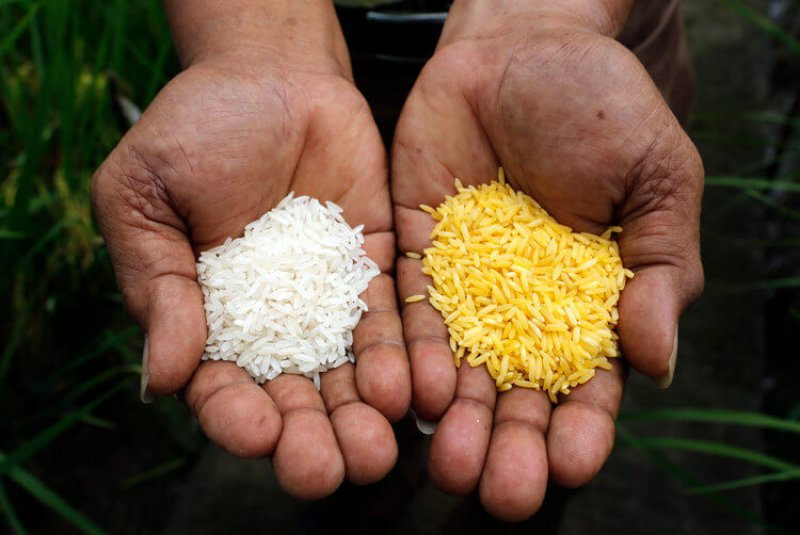The genetically-modified organism (GMO) known as “golden rice” will not significantly address hunger or Vitamin A deficiency (VAD) in the country, according to a government agency.
[Editor’s note: Read the GLP’s fact sheet on Golden Rice]
During the ongoing Stop Golden Rice! Network (SGRN) International Conference, the National Anti-Poverty Commission (NAPC) has joined a regional coalition of farmers, consumers, and environment activists from different countries in rejecting the impending commercialization of golden rice in the Philippines.
The groups opposed the use of genetic modification, which generally meant altering the natural gene pool, until there are enough studies that could disprove its risks to human safety and biodiversity.
“There was no comparative studies between GR2E (golden rice) and other varieties to see if it can lessen Vitamin A deficiency, the reason why the golden rice variety was made,” NAPC secretariat Liza Maza said.
Based on reports collated by the agency in a dialogue with basic sectors, it showed that the controversial crop “poses health risks and threatens the livelihood of peasant communities.”
…
[T]he crop’s initial field testing in 2013 was turned into a fiasco after farmer groups forced their way into DA’s experiment plot and uprooted the crops that were being tested.Read full, original post: ‘Golden rice’ will not address Vitamin A deficiency, hunger—anti-GMO coalition































